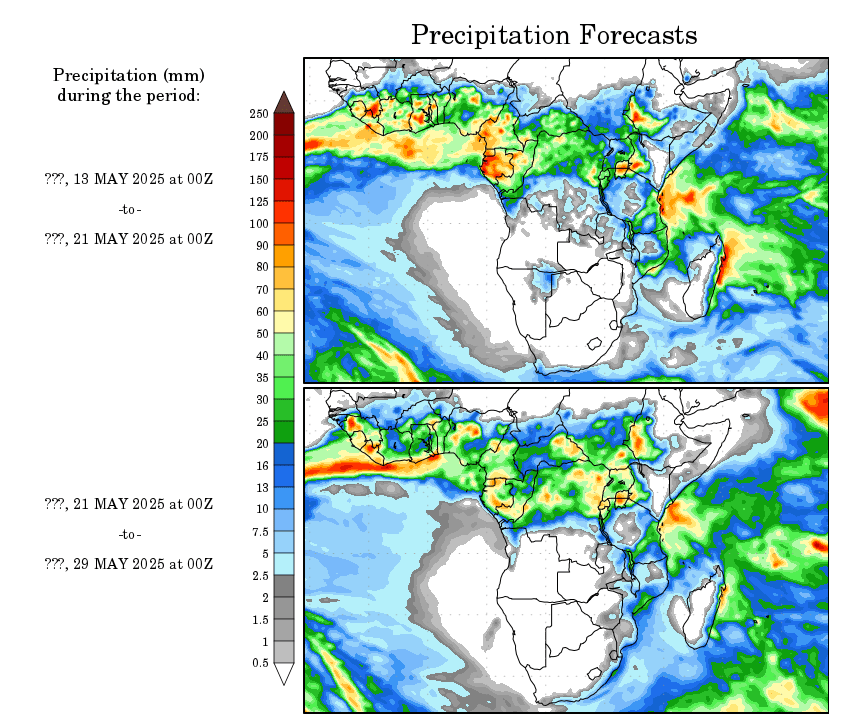Keep an eye on the weather prospects as the winter crop season starts in South Africa
It is still early in the season, we should not panic
We haven't received the early winter rains in the Western Cape. The weather forecasts through the end of May are concerning. They show clear skies across the province, which means there is minimal chance for notable rain. The Western Cape is key, producing more than two-thirds of South Africa’s winter crops.
Still, this is no reason to panic; we are still early in the season. The farmers will increase field work in the coming days, preparing the land for planting when we finally get conducive rains.
But this season is tricky, and the weather forecast in general so far isn't as encouraging. For example, in its monthly Seasonal Climate Watch released on 2 May, the South African Weather Service (SAWS) signalled a worrying outlook about the rain prospects for these regions.
The SAWS stated, "The south-western parts and the southern and eastern coastal areas are expected to receive mostly below-normal rainfall early, mid- and late winter." These regions include the Western Cape, where over two-thirds of South Africa's winter crops are cultivated.
Still, we are early in the season, and this view may change in the coming months. The most important thing is for the producers to consistently assess the weather prospects for their regions and the soil moisture and make the planting decisions, amongst other considerations.
Aside from the uncertain weather prospects, input prices—agrochemicals and some fertilisers—are relatively more favourable for farmers in the winter crop-growing regions, as they are largely down from last year.
Fortunately, despite all this uncertainty, the farmers are optimistic about the 2025-26 winter crop production season. For example, the Crop Estimates Committee shows that the 2025-26 winter crop farmers' planting intentions are 827,970 hectares, up by 1% from the previous season. This comprises wheat, barley, canola, oats, and sweet lupines. More than two-thirds of this is cultivated in the Western Cape.
In the coming weeks, we need improvements in the weather prospects to materialise the anticipated area plantings. We need more rain in the Western Cape. Other provinces mainly produce winter crops under irrigation. Again, this is a matter to keep an eye on, not to fear.





